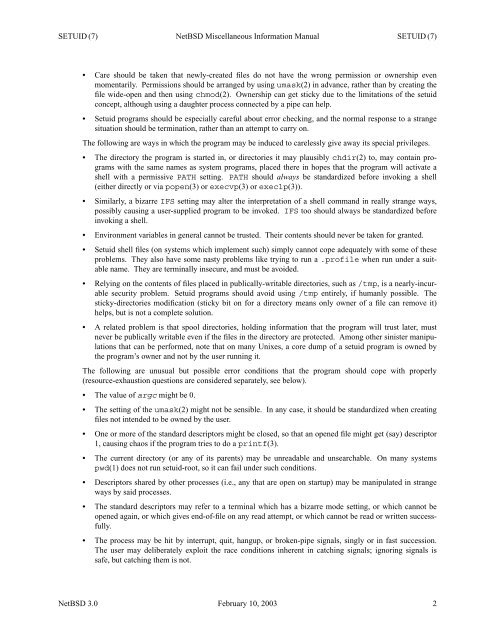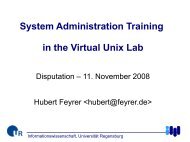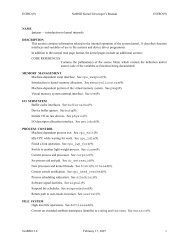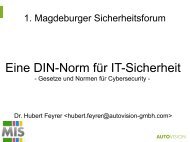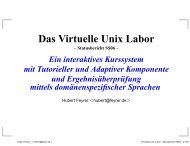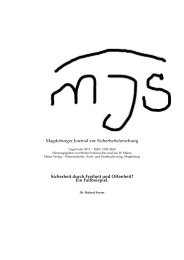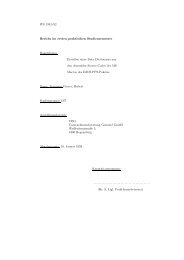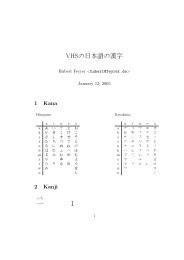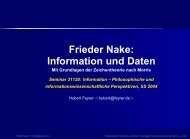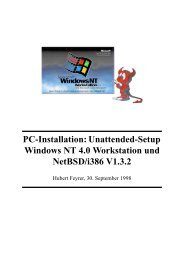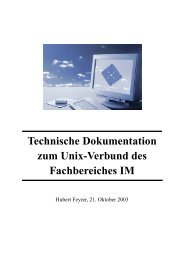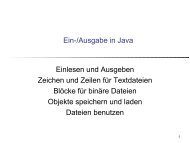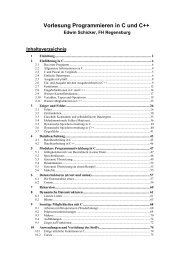INTRO (7) NetBSD Miscellaneous Information Manual INTRO (7 ...
INTRO (7) NetBSD Miscellaneous Information Manual INTRO (7 ...
INTRO (7) NetBSD Miscellaneous Information Manual INTRO (7 ...
Create successful ePaper yourself
Turn your PDF publications into a flip-book with our unique Google optimized e-Paper software.
SETUID (7) <strong>NetBSD</strong> <strong>Miscellaneous</strong> <strong>Information</strong> <strong>Manual</strong> SETUID (7)<br />
• Care should be taken that newly-created files do not have the wrong permission or ownership even<br />
momentarily. Permissions should be arranged by using umask(2) in advance, rather than by creating the<br />
file wide-open and then using chmod(2). Ownership can get sticky due to the limitations of the setuid<br />
concept, although using a daughter process connected by a pipe can help.<br />
• Setuid programs should be especially careful about error checking, and the normal response to a strange<br />
situation should be termination, rather than an attempt to carry on.<br />
The following are ways in which the program may be induced to carelessly give away its special privileges.<br />
• The directory the program is started in, or directories it may plausibly chdir(2) to, may contain programs<br />
with the same names as system programs, placed there in hopes that the program will activate a<br />
shell with a permissive PATH setting. PATH should always be standardized before invoking a shell<br />
(either directly or via popen(3) or execvp(3) or execlp(3)).<br />
• Similarly, abizarre IFS setting may alter the interpretation of a shell command in really strange ways,<br />
possibly causing a user-supplied program to be invoked. IFS too should always be standardized before<br />
invoking a shell.<br />
• Environment variables in general cannot be trusted. Their contents should never betaken for granted.<br />
• Setuid shell files (on systems which implement such) simply cannot cope adequately with some of these<br />
problems. They also have some nasty problems like trying to run a .profile when run under a suitable<br />
name. They are terminally insecure, and must be avoided.<br />
• Relying on the contents of files placed in publically-writable directories, such as /tmp, isanearly-incurable<br />
security problem. Setuid programs should avoid using /tmp entirely, ifhumanly possible. The<br />
sticky-directories modification (sticky bit on for a directory means only owner of a file can remove it)<br />
helps, but is not a complete solution.<br />
• Arelated problem is that spool directories, holding information that the program will trust later, must<br />
never bepublically writable even ifthe files in the directory are protected. Among other sinister manipulations<br />
that can be performed, note that on many Unixes, a core dump of a setuid program is owned by<br />
the program’s owner and not by the user running it.<br />
The following are unusual but possible error conditions that the program should cope with properly<br />
(resource-exhaustion questions are considered separately, see below).<br />
• The value of argc might be 0.<br />
• The setting of the umask(2) might not be sensible. In any case, it should be standardized when creating<br />
files not intended to be owned by the user.<br />
• One or more of the standard descriptors might be closed, so that an opened file might get (say) descriptor<br />
1, causing chaos if the program tries to do a printf(3).<br />
• The current directory (or any ofits parents) may be unreadable and unsearchable. On many systems<br />
pwd(1) does not run setuid-root, so it can fail under such conditions.<br />
• Descriptors shared by other processes (i.e., any that are open on startup) may be manipulated in strange<br />
ways by said processes.<br />
• The standard descriptors may refer to a terminal which has a bizarre mode setting, or which cannot be<br />
opened again, or which gives end-of-file on any read attempt, or which cannot be read or written successfully.<br />
• The process may be hit by interrupt, quit, hangup, or broken-pipe signals, singly or in fast succession.<br />
The user may deliberately exploit the race conditions inherent in catching signals; ignoring signals is<br />
safe, but catching them is not.<br />
<strong>NetBSD</strong> 3.0 February 10, 2003 2


